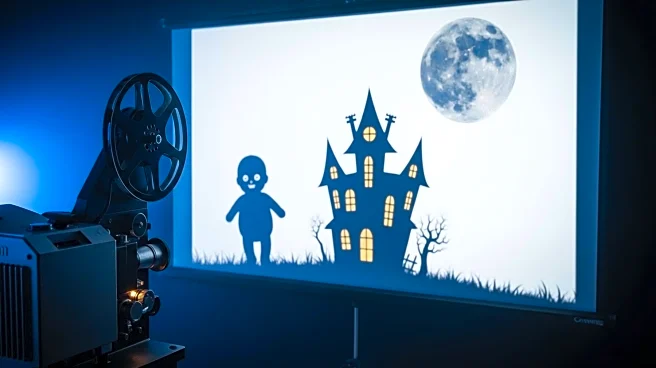What's Happening?
Meta horror films are gaining popularity for their self-aware approach to traditional horror tropes. These films, such as 'Scream' and 'The Cabin in the Woods,' use humor and genre knowledge to engage audiences by subverting expectations. Directors like Wes Craven and Drew Goddard have crafted narratives that both honor and critique horror conventions, offering fresh takes on familiar formulas. The genre's appeal lies in its ability to blend horror with commentary, creating a unique viewing experience.
Why It's Important?
Meta horror films reflect a growing trend in cinema where audiences seek more than just scares; they desire narratives that challenge and entertain through clever storytelling. This shift impacts the film industry by encouraging innovation and creativity, pushing filmmakers to explore new ways of engaging viewers. The genre's success could lead to more diverse and experimental horror films, influencing how horror is perceived and produced in the U.S. and globally.
Beyond the Headlines
The rise of meta horror films may influence broader cultural conversations about media consumption and audience expectations. By highlighting the artificial nature of horror tropes, these films encourage viewers to critically engage with the genre, potentially leading to deeper discussions about the role of horror in society. This trend could also impact how other genres approach storytelling, fostering a more self-aware and reflective cinematic landscape.









